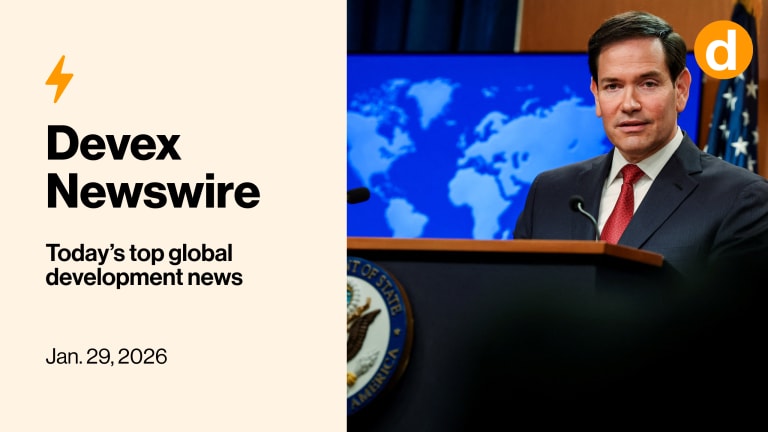Is the U.S. government pursuing a double standard at home and abroad when it comes to aid procurement?
Faced with a hostile budget environment, U.S. foreign aid agencies have sought creative ways to cut costs in the way they procure goods and services from U.S. businesses and NGOs — in particular, by awarding grants and contracts to bidders that offer the cheapest proposals.
But at the same time, the U.S. Trade and Development Agency is now involved in an effort to convince foreign governments to award contracts based on “best-value,” since low-cost contracts rarely go to U.S. firms whose proposed projects are typically more expensive than those from other competitors, mainly Chinese.
Printing articles to share with others is a breach of our terms and conditions and copyright policy. Please use the sharing options on the left side of the article. Devex Pro members may share up to 10 articles per month using the Pro share tool ( ).








